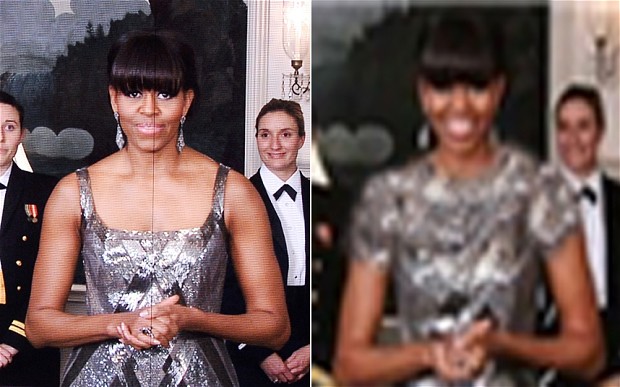Under the turban, plenty of opinions on film | IRAN
Ann Hornaday, eat your heart out. Iran’s islamic republic can fight with the best of them when it comes to voicing opinions on movies. The “Argo” win this weekend has unleashed a torrent of film criticism from the Iranian capital. Maybe we should all pay more attention to this.
Or should we?
Yesterday Iranian media described the handing of the Best Film Oscar to Ben Affleck for “Argo” as “politically motivated.” “Argo” is based on events which took place during the American hostage crisis of 1979.
The 85th Academy Awards Sunday night was “the most political of all time,” said Iranian state television. Ben Affleck was accused of having “exaggerated and inflated things out of proportion by creating fake scenes” by that country’s state media.
During Sunday’s ceremony first lady Michelle Obama opened the envelope and announced the win live from the White House. According to Iranian television, her intervention “reinforces the notion that rewarding ‘Argo’ was politically motivated.” Iran’s Fars news agency (they are affiliated with the Revolutionary Guards, Iran’s elite corps) said “Argo” is an “anti-Iranian movie funded by a zionist enterprise,” in referring to the film’s distributor Warner Brothers.
Fars also criticized the first lady’s wearing of a silver lamé dress that revealed her arms, shoulders and part of his neck, the sort of jaw-droppingly offensive fashion that was banned in the Islamic Republic where the dress code for women is very strict. The semi-official iranian news agency then proceeded to publish a photoshopped image of the first lady, something they clearly did in an attempt to save the first lady’s modesty: in the conjunctivitis-inducing retouched image below Mrs. Obama’s dress covers her shoulders.
On Wednesday of last week Iran’s supreme leader Ayatollah Ali Khamenei (pictured at top) had already accused Hollywood’s establishment of being abjectly political and working as Washington’s mouthpiece. “Hollywood is totally political. Otherwise, it would have allowed our anti-zionist film to participate in film festivals,” he said on his official website khamenei.ir. “Producing films with a strong anti-Iranian subtext and rewarding this anti-Iranian film is a clear sign that politics and art are mixed in the United States,” the supreme leader further stated in a swipe at “Argo.”
While taking some liberties with depicting reality and a warped portrayal of the Shah as a blood-thirsty dictator (that which should have appealed to the Iran’s Islamic Republic, but no opinions on that from Tehran), the film retraces the successful and incredible CIA exfiltration of six U.S. diplomats who had taken refuge in the Canadian Embassy in Tehran, masquerading its members as the crew of science-fiction movie. These diplomats were able to leave the U.S. embassy through a backdoor on November 4, 1979 after Islamist students took 52 people hostage, a defiant stance lasting 444 days which marred Jimmy Carter’s presidency and assured he wouldn’t be reelected to a second term in office.
In 2007, the Hollywood epic “300,” about the Greek-Persian wars, presented Persians as bloodthirsty and angered many Iranian supporters of Khamenei’s.
[See our 2007 review of “300”]And yet the relationship between Hollywood and Iran had seemed to have warmed up yet last year when the Iranian film “A Separation” won the Oscar for best foreign film. Ach, who knows?
[Read A.J. Goldmann’s review of “A Separation”]
On the political level, however, Iran and the United States have had no diplomatic relations since the 1979 hostage crisis and tensions remain high around the Iranian nuclear program, in which Western countries suspect military ambitions on the part of Iran despite repeated denials coming from Tehran’s government.
WAFCA is the Washington-area film critics association: visit their site. Ann Hornaday is the Washington Post’s chief film critic.
news via inbox
Nulla turp dis cursus. Integer liberos euismod pretium faucibua



